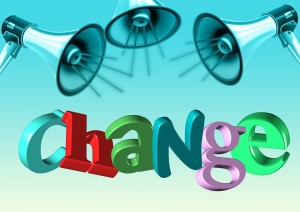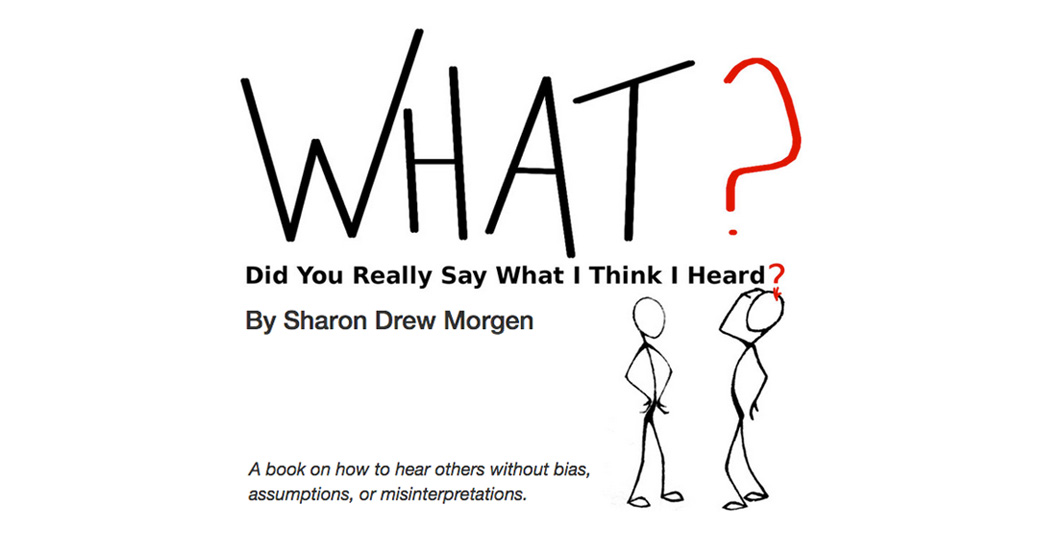DOing vs. BEing: creating rules that put customers first
 I recently purchased dysfunctional products/services from three vendors who were unwilling to go outside company rules to fix the problems they caused. How can we take part in the Trust Economy if our corporate rules preclude us from taking care of customers? Too often there’s a divergence between company rules and customer needs.
I recently purchased dysfunctional products/services from three vendors who were unwilling to go outside company rules to fix the problems they caused. How can we take part in the Trust Economy if our corporate rules preclude us from taking care of customers? Too often there’s a divergence between company rules and customer needs.
I’ll use my vendor issues as a starting point:
- Wheaton International Movers. After researching a big cross-country move, I picked Wheaton. But it was a nightmare: their driver was drunk on both ends of the move; boxes were lost; an expensive sculpture was broken by their packer. Getting reimbursed was a 4-month nightmare: I was ignored, lied to, and finally only paid a fraction of what I deserved even though they accepted responsibility. I was regularly told: “Well, unfortunately Ms. Morgen, that would go against our rules.” No one ever apologized; I’m still missing a favorite painting and important office paperwork; my sculpture is gone.
- CVS online pharmacy. These folks sent a bottle with crushed pills. I fought for weeks to get the pills replaced but I was told I should send them the offending bottle first (the post office is in a different town). “I understand your concern, but we must operate according to company rules.” Rules before my health?
- Fitbit. I purchased a broken Fitbit from an online vendor. Fitbit said they’d send a replacement I never received; the replacement from the online vendor was also broken. Reps at Fitbit actually said they received hundreds of calls a day about the problem but weren’t allowed to do anything about it until their ‘fix’ was ready. What?
As a consumer, I trust I’ll receive what I pay for, and be cared for if there’s a problem. Yet each company above took care of their rules before taking care of me. They put the DOing before the BEing.
RULES
When companies construct internal rules that are juxtaposed with customer needs they ignore the consequences
- Without customers, there’s no need for rules.
- Customer’s complaints go viral.
- Hurting, cheating, disregarding, and ignoring customers always, always loses business.
- For each customer who doesn’t feel fairly treated, companies lose unknown-hundreds of prospective clients for an uncertain time moving forward.
Too often companies confuse their rules [the DOing – regulations, results, performance] with a customer’s needs [the BEing – values, feelings, requirements]. Too many companies make it binary – company rules OR customer criteria – rather than Both/And. How do we design customer service scripts and training, how do we instill a primary focus on serving customers, to achieve Both/And and win/win?
The difference between DOing and BEing is Heart – heart, being one of those ‘soft’ ‘feminine’ words that assumes it’s not possible to make money and make nice (While training Buying Facilitation® at Morgan Stanley I heard they were conducting ‘closing’ training the following week. What? Why do you need both training programs? “Because BF is ‘soft’ and we need ‘hard’ skills to close.”). Isn’t it time to meld heart and head and DO-BE-DO-BE-DO? To make money AND make nice? All research shows the BEing is more profitable.
HOW TO PUT CUSTOMERS FIRST
There’s a way to put customers first AND take care of corporate rules. A few examples:
- Use an impossible customer request as a means to create a life-long partner.
“I hear you’d prefer if we were able to X. Unfortunately we aren’t able to do that, but we want you to be happy. Is there anything else I can do to get you what you deserve? Let’s see if we can get creative.”
Years ago while working with Bethlehem Steel during a trucker’s strike, I had my clients actually purchase steel retail from Pittsburg Steel to make sure Mazda wouldn’t have expensive downtime. We took the hit on cost to keep the customer happy. Well – to keep the customer!
- Use customer’s feelings to exhibit your dedication to them. During month 4 of my Wheaton ordeal, someone said “If you don’t stop shouting I’ll hang up on you!” Seriously? The rep should have been taught to grow a pair and not take it personally:
“Wow. Sounds like you’re really upset. I can imagine how annoyed you must be. I’m so sorry.”
- Make sure each Rep owns the problem. Nothing makes customers more angry than having to call back again and again (and be on hold forever) to find someone to help them, or having to repeat repeat repeat the same complaint to each new Rep. Assign the first Rep to own the problem to resolution.
MAKING MONEY AND MAKING NICE
To operate effectively in this new world of connection, workarounds, visibility and competition, your main differentiator may be how you take care of employees and customers.
- Design company rules that put customers first. So, instead of ‘Send us the damaged pills first [so we can fix any internal problems here]’ it would be, “That prescription is important to your health. I’ll send you an entirely new bottle and include a return mailer so you can send the bad ones back at your convenience. I’m sorry.”
- Trust that customers aren’t your enemies: they pay your bills.
- If you broke it, it’s yours. If you send a bad bottle of pills, a bad Fitbit (twice), or break a sculpture, fix it easily. Don’t take your costs out on the customer.
- Make sure that every customer is happy by the end of each interaction. An unhappy, screaming customer cannot be passed on.
- Create a vision statement that includes the words ‘Customer Service’. So: We are a Customer Service company that designs CRM software.
- Employees are customers. Happy employees take care of customers. I’ve never heard of a company that’s loving, kind, and respectful to their employees and mean to their customers. It’s that BEing thing again. I want to share a story that embodies the Truth of this.
Years ago a client sent a new employee to one of my Buying Facilitation® public training programs to get him caught up with the team I already trained in-house. This man, call him Glen, was angry, rude, mean, and dismissive of everyone around him. I called my client: Who is this mean person? He’s making everyone cry. Why did you hire him? “Do whatever you have to do to break him. I hired him because he’s got potential.” So I went into action on Day 2 and facilitated Glen through the outcomes he was causing. On Day 3 he came to class like a saint – supportive of others, kind, gentle, fun. What happened? Here’s what he said:
Every day, I’ve had to leave my house for work and put my ‘mean’ suit on. I was told I had to convince prospects, push closes, bias discussions about our products to promote a sale. I hated it: I had to shift my personality to ‘Do’ this manipulative, insensitive person. I told myself I had to become a shark. I’ve been miserable and my family has suffered; I didn’t know any other way to keep my job except to follow their rules and be miserable. Now I’m learning it’s possible to make money AND make nice; now I can be my real self and do my job successfully.
As a testament to his change, he got a huge – huge – tattoo of a shark on his back the evening he had his realization. He came to class the next day with the tattoo stating “I’ve put the shark behind me.”
To determine if you need to rethink your rules, to be part of the Trust Economy, consider these questions:
How will you know that the rules you have in place are customer-centric? If you need several layers of customer service to handle angry customers, or you regularly read negative Tweets or Yelp comments about you, there’s a problem.
How can you tell if you’re putting employees first? High turnover might be an indication.
How often do customer problems get escalated? Have you trained every level of staff to seek win/win results?
If you put people first, how would your rules change? And what beliefs would you need to reconsider?![]()
What skills do employees have to achieve win/win when a problem occurs? Remember the mythical customer service rule Nordstrom was famous for? “Use your best judgment.” Of course that changes your hiring criteria. So be it.
I realize regulations are necessary to run a company. But so are customers. It’s possible to do the DOing and the BEing in a way that promotes income and care. What’s stopping you?
____________
Sharon Drew Morgen is an original thinker and visionary who designs communication/choice models for sales, coaching, customer service, and leadership. She is a keynote speaker, trainer, coach, and consultant. Sharon Drew is the developer of Buying Facilitation® and author of the NYTimes Business Bestseller Selling with Integrity, and the Amazon Bestseller What? Did you really say what I think I heard?as well as one of the top 10 bloggers in sales/marketing (www.sharondrewmorgen.com).
Contact Sharon Drew to help you review your regs and design people-centric rules that support customers. sharondrew@sharondrewmorgen.
Sharon Drew Morgen June 27th, 2016
Posted In: Communication, News

